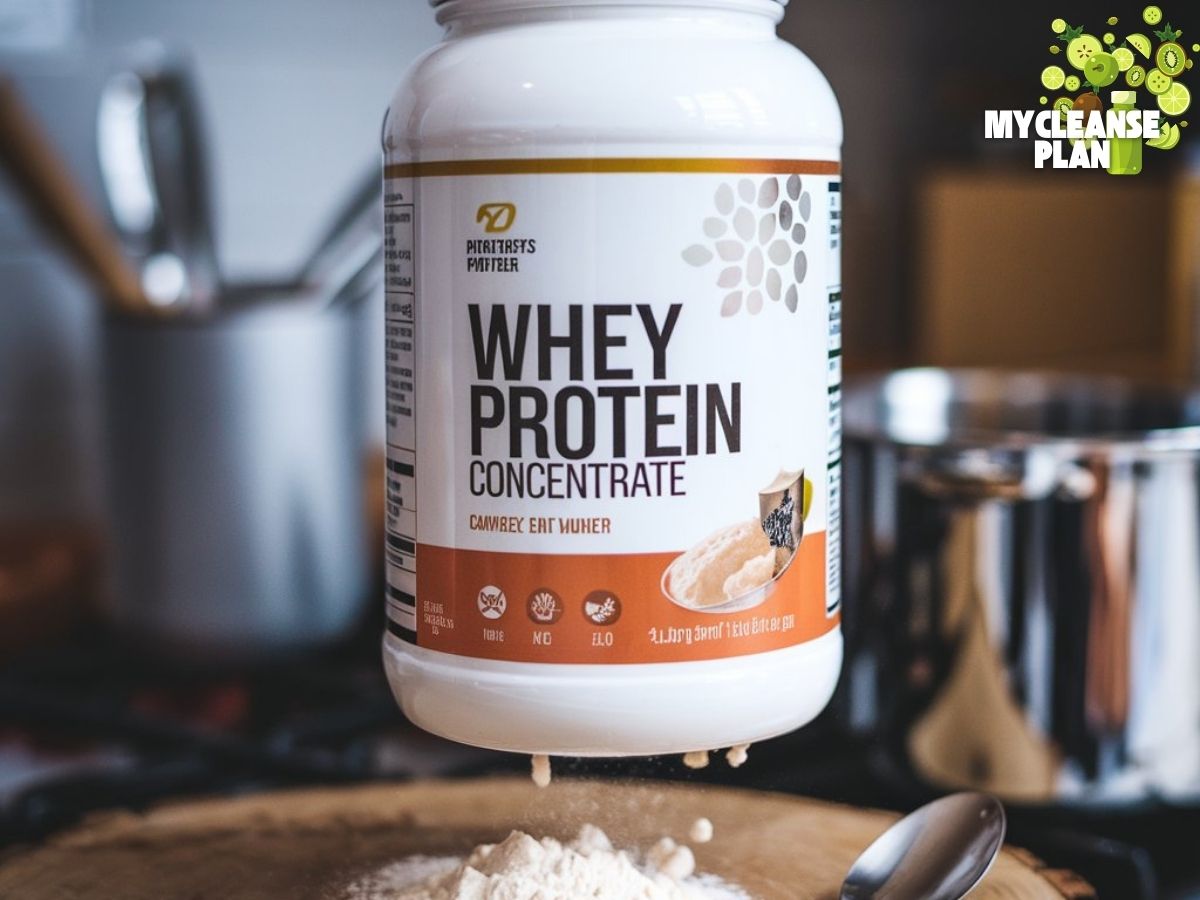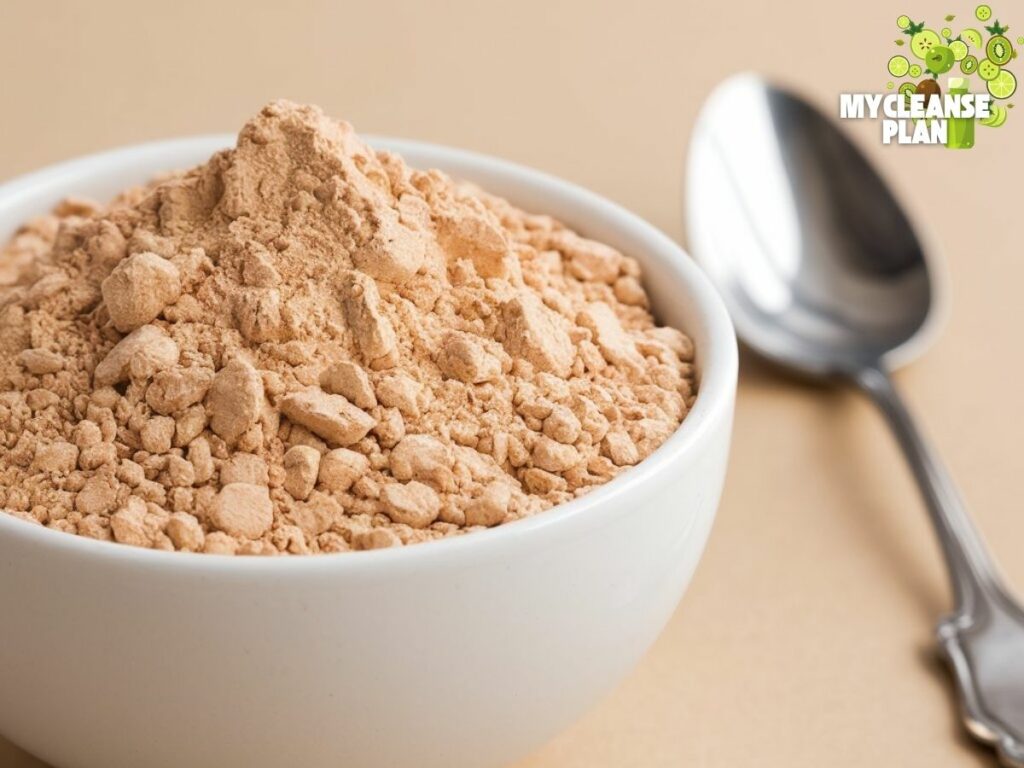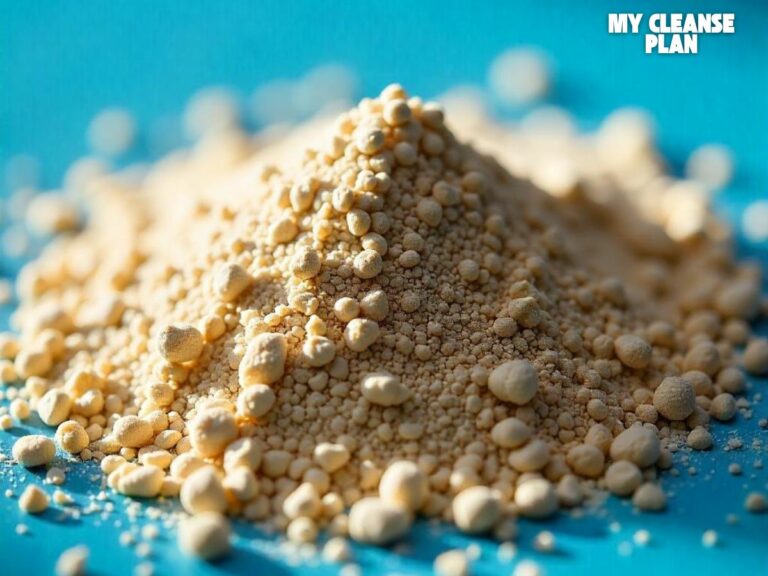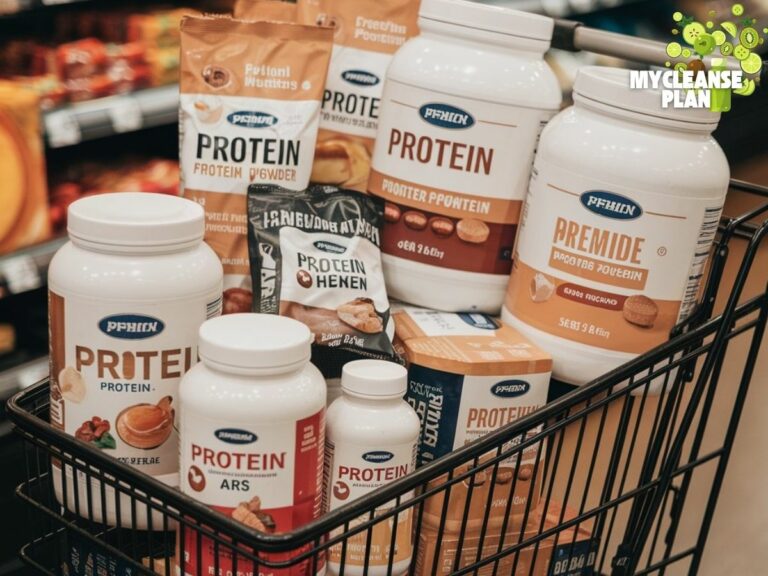What Is the Main Ingredient in Whey Protein Powder?
Whey protein powder is a popular dietary supplement widely used for its high-quality protein content, derived from the liquid byproduct of cheese production.
It is favored by athletes, fitness enthusiasts, and individuals looking to boost their protein intake for muscle growth, recovery, and overall health.
What is the main ingredient in whey protein powder?
The main ingredient in whey protein powder is whey protein concentrate, which is rich in essential amino acids and provides the primary protein content in the supplement.
This article will help you out to understand the main ingredient in whey protein powder is essential for making informed decisions about its use and ensuring it meets your dietary needs and health goals.

Key Takeaways
Expert Guide
Whey: A Byproduct of Cheese Production
Whey is the liquid that separates from curds during the cheese-making process. When milk is curdled and strained, the solid curds are used to make cheese, while the remaining liquid is whey.
This whey contains a mixture of water, lactose (milk sugar), minerals, and proteins. The proteins in whey, including beta-lactoglobulin, alpha-lactalbumin, and immunoglobulins, are highly valued for their nutritional quality.
This liquid is further processed to concentrate the protein content, remove most of the fat and lactose, and then dried into a powder to create whey protein powder.
Nutritional Profile of Whey Protein
Whey protein is renowned for its impressive nutritional profile, making it a preferred choice for supplementation:
High Protein Content:
Whey protein powder typically contains 70-90% protein, depending on the type (concentrate, isolate, or hydrolysate).
This protein is complete, meaning it provides all nine essential amino acids that the body cannot produce on its own.

Rich in Branched-Chain Amino Acids (BCAAs):
Whey protein is especially high in BCAAs, such as leucine, isoleucine, and valine. These amino acids are critical for muscle repair and growth.
Low in Fat and Carbohydrates:
Depending on the processing method, whey protein can be low in fat and lactose, making it a suitable option for those looking to reduce calorie intake or who are lactose intolerant.
Fast Digestibility:
Whey protein is quickly absorbed by the body, making it an ideal post-workout supplement to support muscle recovery.
Additional Nutrients:
Beyond protein, whey also contains small amounts of vitamins and minerals, including calcium, potassium, and magnesium, contributing to overall health.
What Is The Main Ingredient In Whey Protein Powder?
Whey protein concentrate (WPC) is the most widely used form of whey in supplements.
- WPC typically contains 70% to 80% protein by weight.
- WPC is less processed compared to whey protein isolate, retaining more of the natural compounds, including some lactose and fats.
- A 30-gram serving of WPC provides approximately 21-24 grams of protein.
- WPC is a highly effective way to increase daily protein intake, particularly for physically active individuals.
- WPC contains all 9 essential amino acids required by the body.
- High in branched-chain amino acids (BCAAs), including leucine, isoleucine, and valine. Critical for muscle protein synthesis, supporting muscle repair and growth.
- The amino acid profile in WPC aids in muscle recovery, making it particularly beneficial for women over 50, who may require additional support for muscle maintenance and bone health.
Benefits of Whey Protein
Whey protein offers a range of benefits, from muscle recovery and weight management to supporting bone health and immune function.
Muscle Recovery and Growth
Whey protein is renowned for its ability to enhance muscle recovery and promote growth, particularly after intense workouts.
Many users have shared positive experiences, highlighting how whey protein has helped them recover faster and build lean muscle mass.
For example, one satisfied customer, who is in her early 50s and started incorporating whey protein into her post-workout routine, mentioned:
“I’ve been using whey protein after my strength training sessions for the past six months. The difference is incredible—my muscles feel less sore, and I’ve noticed a significant increase in my muscle tone. It’s really helped me stay active and strong.”

Weight Loss and Metabolism Boost
Whey protein can also support weight loss by boosting metabolism and helping maintain lean muscle mass while reducing fat.
This is particularly beneficial for those looking to manage their weight, including women over 50 who may face challenges with a slowing metabolism.
A customer shared her experience:
“As someone who’s always struggled with weight management, I decided to try whey protein as a meal replacement once a day.
Not only did I start losing weight steadily, but I also felt more energetic throughout the day. My metabolism seems to have picked up, and I’m thrilled with the results.”
Bone Health and Immune Support
In addition to its benefits for muscles and weight management, whey protein is also beneficial for bone health and immune support.
The high levels of calcium and the presence of immunoglobulins in whey protein make it a great supplement for supporting overall health.

A woman in her mid-50s, shared how whey protein has helped her:
“After turning 55, I became more concerned about bone health. I started taking whey protein, and my last bone density scan showed improvement.
I also feel that my immune system is stronger, as I haven’t had a cold in over a year. Whey protein has become an essential part of my daily routine.”
Additional Ingredients in Whey Protein Powders
Here’s the information in the following table
| Category | Function | Examples | Details |
|---|---|---|---|
| Flavoring Agents | Enhance taste and make the product more palatable | – Natural: Cocoa powder, vanilla extract- Artificial: Synthetic chocolate flavor | Common flavors include chocolate, vanilla, and strawberry. Natural flavorings use real ingredients, while artificial ones mimic natural tastes.Artificial flavorings are used to intensify or replicate natural flavors. |
| Sweeteners | Improve sweetness and overall taste | – Natural: Stevia, monk fruit extract- Artificial: Sucralose, aspartame | Preferred by those seeking low-calorie, plant-based options.Used in diet formulations for their intense sweetness and zero-calorie content. |
| Stabilizers and Preservatives | Maintain texture, extend shelf life, prevent spoilage | – Stabilizers: Lecithin (soy or sunflower)- Preservatives: Potassium sorbate, citric acid | Lecithin enhances mixability and prevents clumping, ensuring a smooth texture.These inhibit bacterial and mold growth, keeping the product safe for consumption over time. |
FAQs of What is the main ingredient in whey protein powder?
Can whey protein help with weight loss?
Yes, whey protein can support weight loss by boosting metabolism and helping maintain lean muscle mass, which can aid in fat reduction.
Is whey protein suitable for people with lactose intolerance?
Whey protein concentrate contains some lactose, but whey protein isolate or hydrolysate, which have lower lactose content, may be more suitable for those with lactose intolerance.
Are there any side effects of consuming whey protein?
In general, whey protein is safe for most people. However, excessive consumption may cause digestive issues such as bloating or gas. It’s best to follow recommended serving sizes and consult with a healthcare provider if you have concerns.






